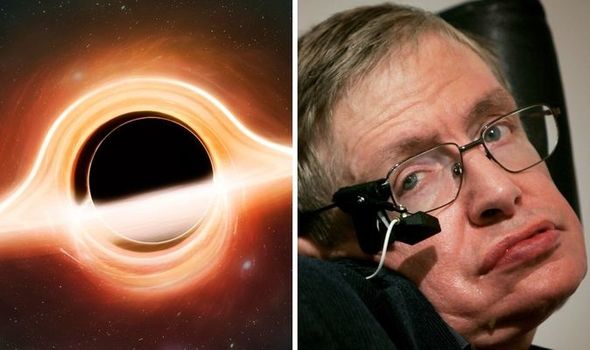Introduction:
Stephen Hawking, a brilliant theoretical physicist, revolutionized our understanding of the cosmos, leaving an indelible mark on the field of astrophysics. Among his many groundbreaking contributions, Hawking’s work on black holes stands out as a monumental achievement. This extensive article delves into the intricacies of Stephen Hawking’s discovery of black holes, exploring the scientific journey, the revolutionary concepts introduced, and the enduring impact on our comprehension of these enigmatic cosmic entities.
I. Early Life and Academic Pursuits: The Seeds of Genius
- Formative Years: A Prodigy Emerges:
- Stephen Hawking’s early life showcased signs of extraordinary intelligence and an innate curiosity about the mysteries of the universe. His academic prowess laid the foundation for a remarkable scientific career.
- Academic Pursuits at Oxford and Cambridge: Theoretical Physics Takes Root:
- Hawking’s academic journey at Oxford and later at Cambridge immersed him in the world of theoretical physics. His fascination with cosmology and the fundamental nature of the universe began to take shape.
II. Motor Neuron Disease Diagnosis: Triumph Over Adversity
- Diagnosis and Determination: Confronting Motor Neuron Disease:
- The diagnosis of motor neuron disease (ALS) in Hawking’s early twenties presented a formidable challenge. Despite the physical limitations imposed by the disease, Hawking’s determination and resilience fueled his pursuit of scientific knowledge.
- Voice of the Cosmos: Technology Aids Communication:
- The development of Hawking’s iconic speech-generating device not only allowed him to communicate but also transformed him into a global ambassador for science. His voice became synonymous with profound ideas about the nature of the universe.
III. Formation of Hawking Radiation Theory: A Paradigm Shift in Astrophysics
- Black Holes: A Cosmic Conundrum:
- Black holes, celestial entities with gravitational forces so strong that nothing, not even light, can escape, were a perplexing puzzle in astrophysics. Hawking aimed to unravel their mysteries.
- Quantum Mechanics Meets General Relativity: A Marriage of Theories:
- The union of quantum mechanics and general relativity, two pillars of modern physics, was a significant challenge. Hawking embarked on the quest to reconcile these theories within the extreme conditions surrounding black holes.
IV. Hawking Radiation: Illuminating the Darkness of Black Holes
- Virtual Particle Pairs: Quantum Fluctuations in Empty Space:
- Hawking’s groundbreaking insight originated from the quantum nature of empty space. He proposed that near the event horizon of a black hole, particle-antiparticle pairs could spontaneously appear, with one falling into the black hole and the other escaping.
- Escape of Particle-Antiparticle Pairs: The Birth of Hawking Radiation:
- Hawking’s genius lay in realizing that under certain conditions, one particle from the pair could escape the gravitational pull of the black hole. This escaping radiation, later named Hawking radiation, represented a transformative concept challenging traditional views of black holes.
V. Scientific Impact and Recognition: A New Understanding of Black Holes
- Publication of Hawking Radiation Paper: A Scientific Landmark:
- In 1974, Stephen Hawking published his seminal paper titled “Black Hole Explosions?” in the scientific journal Nature. This paper laid out the revolutionary concept of Hawking radiation, forever altering our understanding of black holes.
- Scientific Community’s Response: Theoretical Triumph and Debate:
- Hawking’s proposal of Hawking radiation sparked intense scientific discussion. While many lauded the theory as a triumph of theoretical physics, others engaged in debates about its implications for longstanding principles like the conservation of information.
VI. Further Explorations: Evaporation of Black Holes and Information Paradox
- Hawking’s Black Hole Information Paradox: A Conundrum Unresolved:
- The black hole information paradox arose from the conflict between the principles of quantum mechanics and the apparent loss of information in a black hole. Hawking’s exploration of this paradox deepened our understanding of the complexities inherent in the quantum nature of black holes.
- Evaporation of Black Holes: The Hawking Process Continues:
- Hawking radiation led to the realization that black holes could gradually lose mass and energy through the emission of particles. This phenomenon, known as black hole evaporation, introduced a dynamic element to the previously perceived static nature of black holes.
VII. Popularity and Accessibility: Bringing Astrophysics to the Masses
- A Brief History of Time: A Bestseller Beyond Expectations:
- Hawking’s book, “A Brief History of Time,” aimed at making complex astrophysical concepts accessible to the general public, became a global bestseller. Its success propelled Hawking into the realm of public intellectuals, making him a household name.
- Media Appearances and Public Lectures: A Communicator of Cosmic Ideas:
- Hawking’s engaging media appearances, including documentaries and popular science programs, further cemented his role as a communicator of cosmic ideas. His public lectures and interviews captivated audiences worldwide.
VIII. Legacy and Future Explorations: Hawking’s Lasting Influence
- Legacy in Astrophysics: Shaping the Course of Cosmological Inquiry:
- Stephen Hawking’s legacy in astrophysics is profound. His contributions to the understanding of black holes, quantum mechanics, and the nature of the universe have shaped the course of cosmological inquiry, inspiring generations of scientists.
- Black Hole Information Paradox Revisited: Ongoing Research:
- The black hole information paradox remains a vibrant area of research, with scientists building upon Hawking’s work to unravel the mysteries surrounding the fate of information consumed by black holes.
IX. Conclusion: Stephen Hawking’s Enduring Cosmic Odyssey
In conclusion, Stephen Hawking’s discovery of Hawking radiation and his groundbreaking contributions to our understanding of black holes have transcended the boundaries of theoretical physics. From his early academic pursuits to the triumph over adversity presented by motor neuron disease, Hawking’s life was a testament to the power of human intellect and determination. His legacy continues to illuminate the cosmos, inviting future generations to explore the enigmatic realms of black holes and the fundamental nature of the universe. As we reflect on Hawking’s enduring cosmic odyssey, his brilliance serves as a guiding light for those who dare to unravel the mysteries that lie beyond the stars.
